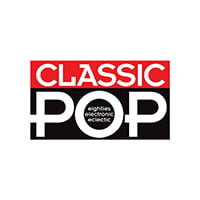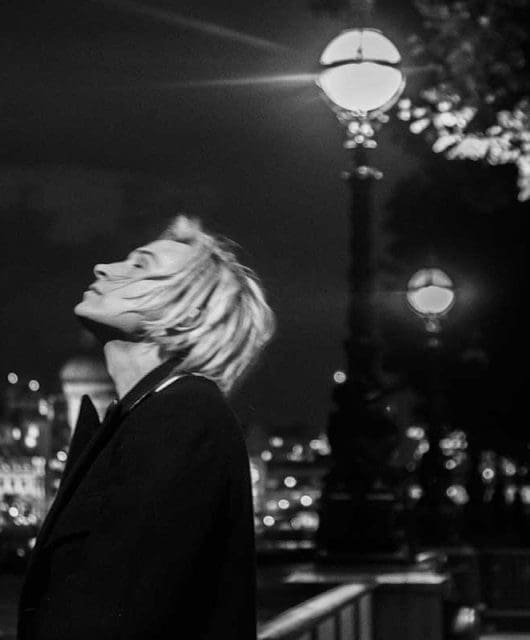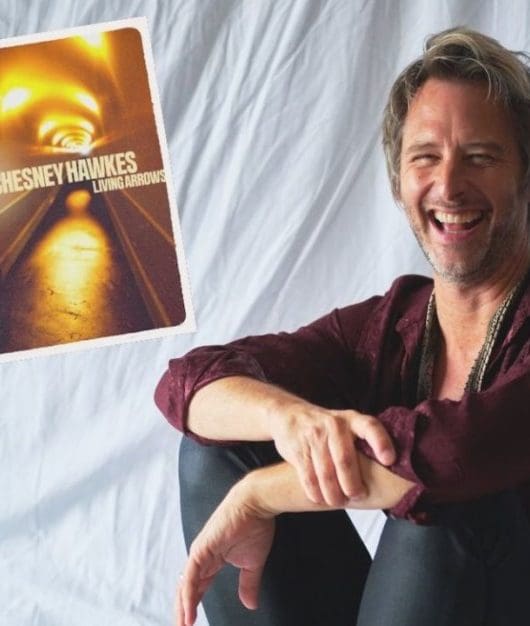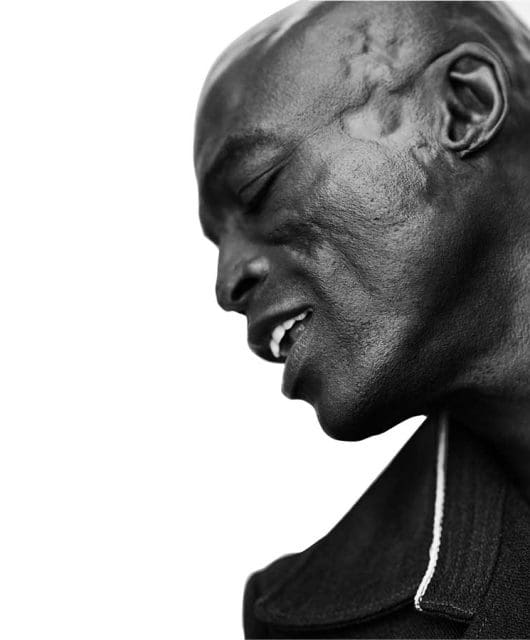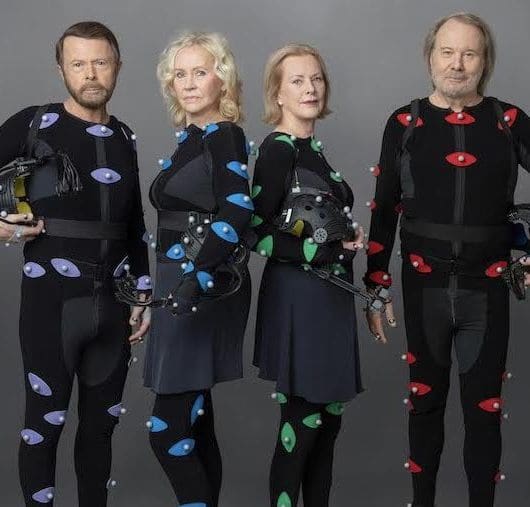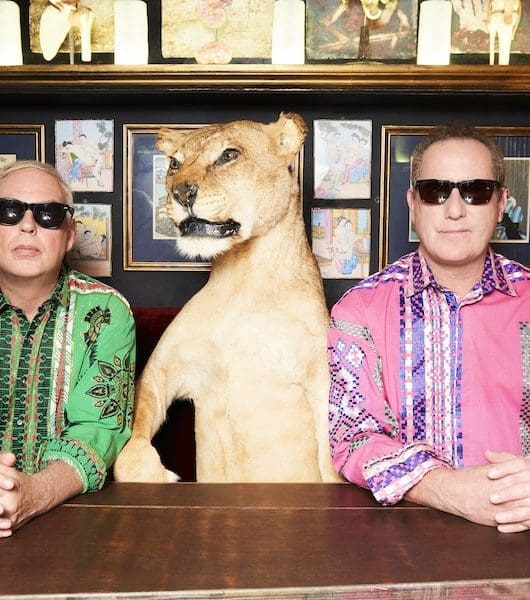Goldfrapp interview: “I think most bands are too scared to try something different…”
By Classic Pop | March 14, 2023
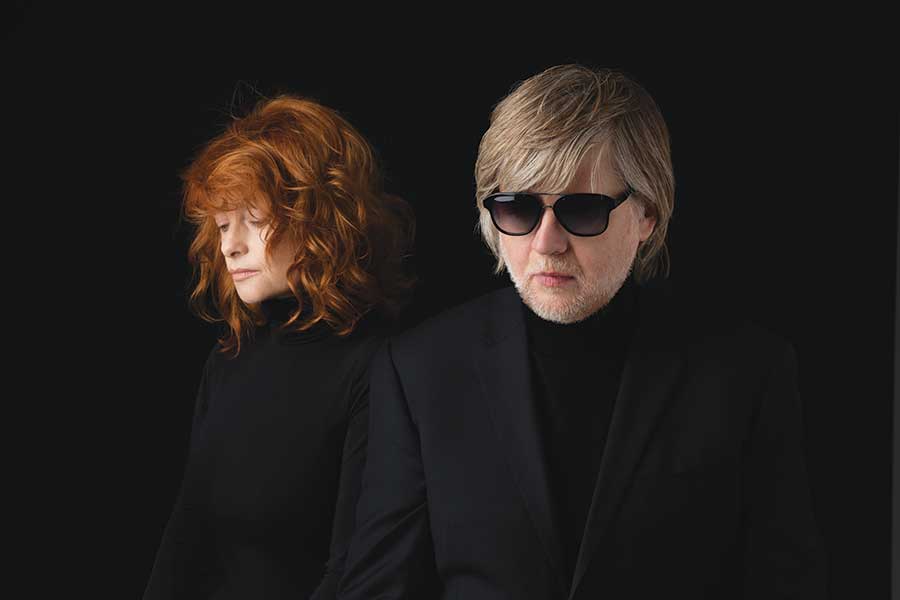
In 2017 Goldfrapp released their seventh – and latest to date – album, Silver Eye. That year, Rudy Bolly caught up with them for Classic Pop…
Few bands manage to reinvent their sound and image as well as Goldfrapp.
Frontwoman Alison Goldfrapp and behind-the-scenes sonic architect Will Gregory consistently keep fans on their collective toes, careering from panoramic string-infused extravaganzas to glam synth stompers.
Their latest opus, Silver Eye, jettisons the lush pastoral textures of 2013’s Tales Of Us to embrace a dirtier electronic aesthetic.
“Our mood got a little darker so it felt like time to throw off the peasant outfit and put on something a little more urban,” chuckles Will. “Whatever comes next is the antidote to what we’ve done already, if only to keep ourselves sane.”
“I think most bands are too scared to try something different,” agrees Alison, her signature blonde locks now straighter and with a reddish hue. “We’ve never really thought too much about it.”
Silver linings songbook
Two decades ago, Will Gregory – the son of a Covent Garden chorus girl – was plying his trade as a saxophonist.
Tired of the tour bus he turned his attention to writing soundtracks, until happening upon a tape containing an early demo of Human by a yodeling performance artist. Alison Goldfrapp was someone he felt compelled to meet: “Wherever she is, I want to be there, too – because I feel like I already am.”
Seven albums later, Goldfrapp are closing in on their 20th anniversary, a milestone longer than many marriages.
Reflecting on their enduring relationship Will quips: “I’m slightly amazed, too, how long we have managed to put up with each other.” Alison deadpans: “It’s been constant, we are so used to each other now we are telepathic.”
The self-deprecating jibes certainly resemble those of an old married couple, yet Alison and Will remain oddly independent entities.
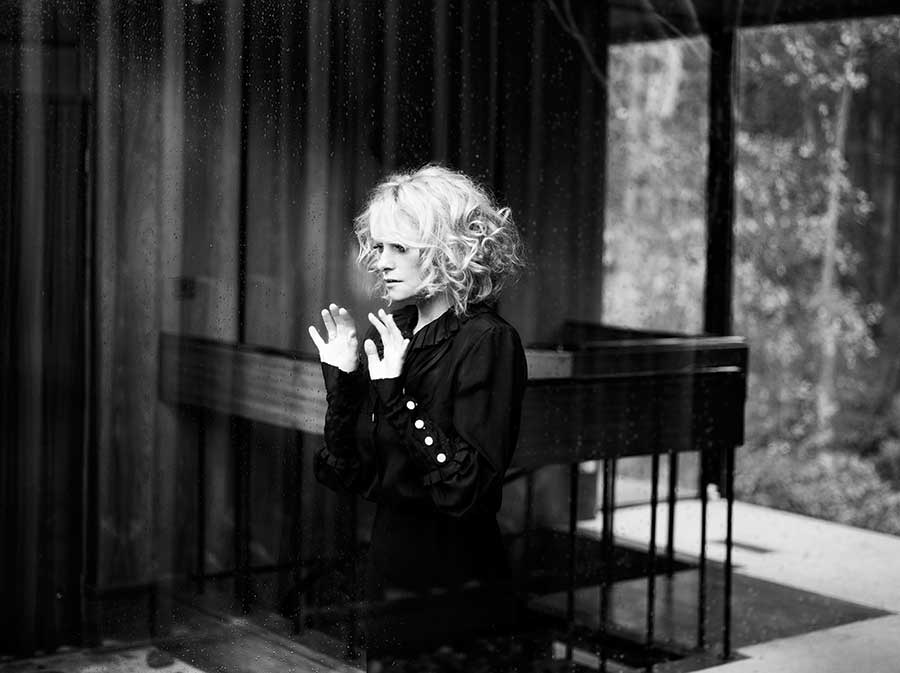
Interviews are rarely conducted together and Will has all but given up performing live with Goldfrapp, leaving Alison and hired hands to tour. “It’s the same that it always was,” he explains, delving deeper.
“We have had a very formal relationship and that’s why it has had such a long and fruitful duration. I think we have kept a certain work aesthetic to how we interact and it’s very much about putting the hours in and respecting what each other does.
“Wanting to get the best out of each other. Because we are so different as people, that’s always felt good because we don’t cover each other’s bases at all – I think we both want what the other person does.
“Outside of work, we don’t crowd each other or see much of one another. I tend not to tour so there’s space there for both of us to decompress. Because when you are working on a record together it’s a long haul with a lot of contact hours together.”
Theatre of dreams
It makes Goldfrapp sound like a marriage of convenience. That isn’t quite the case he assures: “We tried doing it independently and it doesn’t really work.
“We still have to be there in the room together and turn up for Goldfrapp to happen.”
Crucially, Alison and Will both think about music visually and Silver Eye is no different. Its striking visuals complement lyrics conveying pagan rituals, the elemental and the clash of human versus nature.
It paints a sort of 21st Century version of The Wicker Man. Will laughs: “We weren’t sacrificing in a Pagan way. More in a angst way as in ‘what are we doing and why are we doing it?’ The usual self-doubt and grey areas.
“But we love the ideas of The Wicker Man, those English atmospheres, pre-Christian rituals. It’s hard to translate how that figures in what you are doing apart from making it more intense and primal.”
“The visuals are just another way to express or translate some of the ideas,” adds Alison. “It’s another way of creating a narrative.”
By their own admission, Silver Eye had a tricky gestation period. Following Tales Of Us, the duo scored The National Theatre’s production of Greek tragedy Medea; and then came a little unstuck.
- Read more: Bananarama albums – the complete guide
“We took more time off,” acknowledges Will. “The longer we go on, the higher the rejection rate has to be otherwise you just repeat yourself, and we get a little pickier. We are terrified of turning the handle and cranking out another burger.”
Silver Eye is no Big Mac. In fast food terms a lobster roll, perhaps. It’s luxurious, louder and even a little bit grubbier than Tales Of Us. Such transformation – be it musical, visual or spiritual – is key to Goldfrapp’s success. Silver Eye goes even further and takes aim at the metamorphic power of the moon.
“There’s a lot of moon, I look at it a lot,” details Alison, describing the record as a hybrid of anthropomorphism, mysticism and dreams. “They’ve been there on all the albums but it’s much more focused on this record.”
Equally fascinated, Will says: “Before humans stopped hunting, they depended on the sun and the lunar cycles. Yet we still know very little about it.”
Sonically it’s a record that constantly mutates, each song building towards a crescendo of some sort. But it’s Become The One that really focuses on change and questions who human beings might want to be.
Alison was moved to write the track after seeing the 2015 documentary, My Transgender Summer Camp. “Become the one/ You know you are,” she sings over and over again, her treated vocals morphing from a dark robotic growl to the sweet purity of her real singing voice.
“It’s celebratory, about looking inside yourself and having the confidence to change – not changing, becoming the thing that you want to be. We all have dual personalities,” she says.
All that glitters
Having instigated so many transformations themselves, it begs the question – is Goldfrapp the band they always wanted it to be?
“We’ve tried wanting to be many things,” responds Will with a hint of irony. “We have written reams about what type of album we wanted to create, like ‘surely we could go here and do that’. But it has never worked and we end up doing the opposite. A Goldfrapp record just seems to be something we find as we go along.”
Less certain Alison adds: “I don’t think we ever really know what we’re doing. But it has to feel genuine. We often start out with a plan and quite quickly that plan goes out of the window.
“Plans are good but it’s good to be prepared to throw them away as well.”
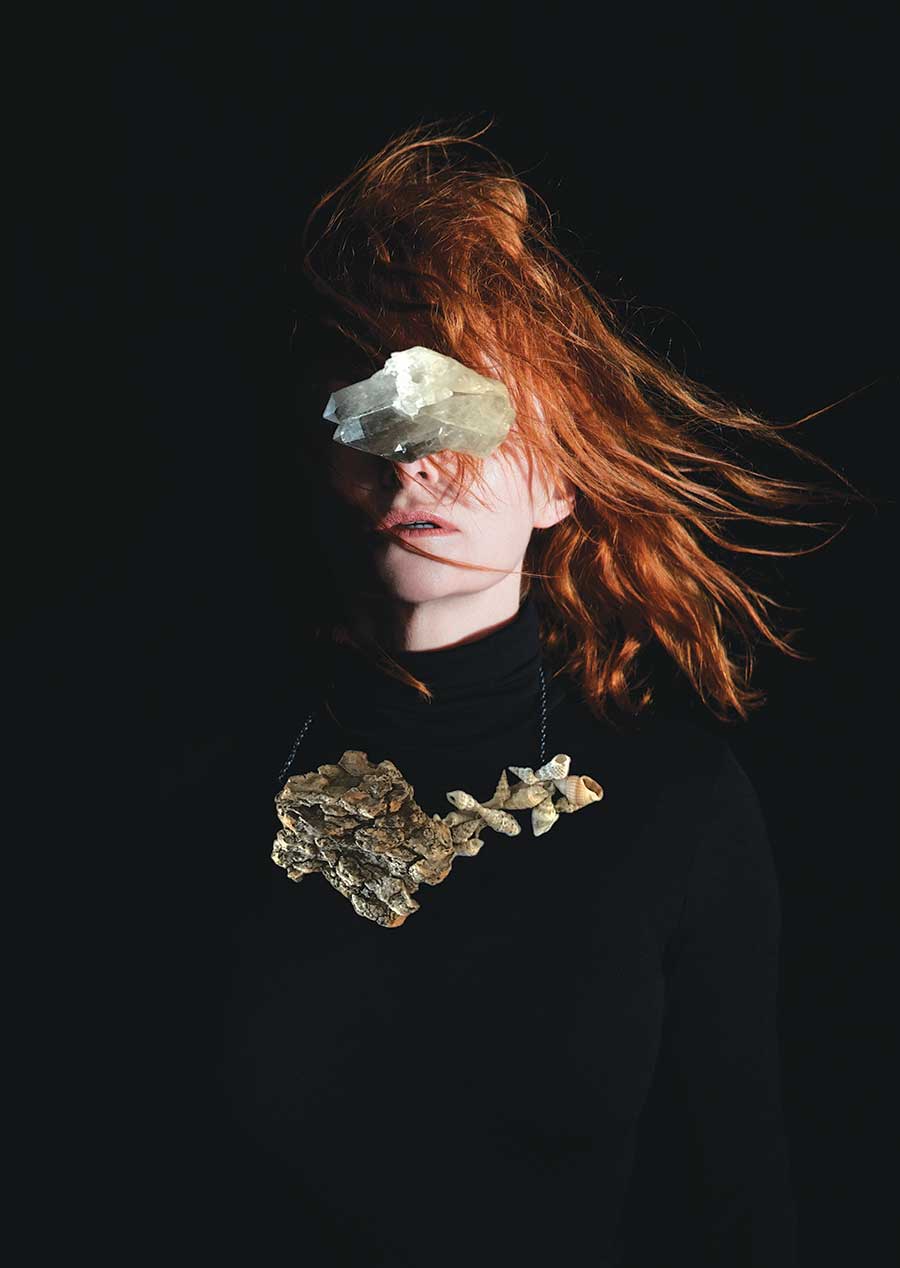
For all the incarnations, Goldfrapp’s music can just as easily be condensed into two more basic camps – upbeat and downbeat. Will concedes: “The last one we went off on a very pastoral vibe, no drums, the groove aspect was in the background.
“It was mood, melody and harmony exploring textures. But with this one we thought, ‘no, let’s put the rhythm at the forefront and explore that’. We were long overdue to shake ourselves around a bit.”
The new music has more in common with past electronic favourites, Black Cherry and Supernature.
Will agrees but adds: “Also, we had done the glammy thing, so this time it had to be hard and electronic, less soft-edged. Trying to see what else the synths can do.”
Although Alison clarifies: “I wouldn’t call it dance music.” The “mantra-like rhythms” of Krautrock, so adored by Alison, make their presence heard on the record. But, as ever, it’s her extraordinary voice that fuels Goldfrapp’s transformative power.
“The voice is the big thing that links it all,” says Will, patently still excited by her talent. “And for me it’s about trying to coax a new sound out of what Alison can do as she has such a huge range of voices.
“I’m always excited to see if we can get somewhere we haven’t been before with the voice. That has always given me hope when we are stuck, we can keep exploring and mine the million voices that Alison has in her.”
What is most unusual about Silver Eye is its collaborative roll call. Normally Alison and Will work alone, but this time the celebrated likes of John Congleton and Leo Abrahams injected a fresh approach.
“We wanted to bring some other heads into it to avoid getting stale and reiterate our own foibles,” confirms Will. “You pick new things up, it’s interactive and it make things quicker because even if you’re not digging what they’re doing, it throws up questions about how to focus.
“Leo creates an amazing soundscape with the guitar which is very much his own thing and often you don’t even know it’s a guitar. So there are big dreamy soundscapes from him.
“Then we went over to America to work with John Congleton, because we love his stuff with John Grant and St Vincent, to see if he could rough it up a bit; and he did.”
Perhaps industrialist the Haxan Cloak, who tweeked Björk’s 2015 album Vulnicura, is the most surprising partnership.
“We loved his dark aesthetic, that deep sonic droney, doomy thing was great.” Alison continues: “He is an important part of the record, and inspired us both.”
- Read more: Goldfrapp Albums – The Complete Guide
Secret of their success
Another important figure was somebody who has been with Goldfrapp from the very beginning – Mute label boss Daniel Miller.
“Daniel is really your dream record boss because he doesn’t really get involved if he thinks it will throw you off,” explains Will. “But he will give an opinion when you need wisdom.
“What he was good at this time was saying, ‘I can see what you are doing with this track but there was a version you made six months ago that I really liked when you did this’.
“He had the ability to see the project from a distance. He’s been a player, too, on other albums, fuzzed things up and distorted things. We’ve definitely picked up a lot of tips and insights from him.”
Goldfrapp’s chart successes have nearly always coincided with their upbeat material. Oh La La and Number 1 became huge pop hits, but unfortunately bands of a certain age rarely get the opportunity to chart anymore. Is Silver Eye craving a hit?
“Radio is a fickle mistress,” murmurs Will, with the trepidation of a jilted lover. “If you court her you will be disappointed. Anything where you are expecting a response is dangerous territory and it can lead you down the wrong path.
“You can never second-guess these things, you can only please yourself. It’s about being satisfied that you have explored everything to its fullest extent and not left anything half cocked.
“Some of the things I love the most are obscure and have probably never seen the radio and that’s OK. You can’t expect everything to appeal to everyone.”
It takes two
In marketing terms, the focus has switched from radio to streaming. Goldfrapp are unlikely to make it onto Spotify’s most-played list, but they do see the positives in the new medium.
“You have to say more music is getting out there to more people in more varied way,” says the man behind the keyboards. “It makes people search it out rather than being spoon-fed.
“It’s a positive thing even if it’s hard to handle in terms that people seem to set themselves up as streamers rather than supporting the music financially.”
Elegant new tracks like Faux Suede Drifter allow Will to parade his collection of analogue synthesizers. Alison has “to rein him in” from time to time.
“I’m lucky to have collected some lovely analogue things,” admits Will, who also makes music with the Moog Ensemble. “My family probably need to sit me down and say, ‘we need a holiday not another synth’. But what the synthesizer can do or fails to do is rather beautiful.”
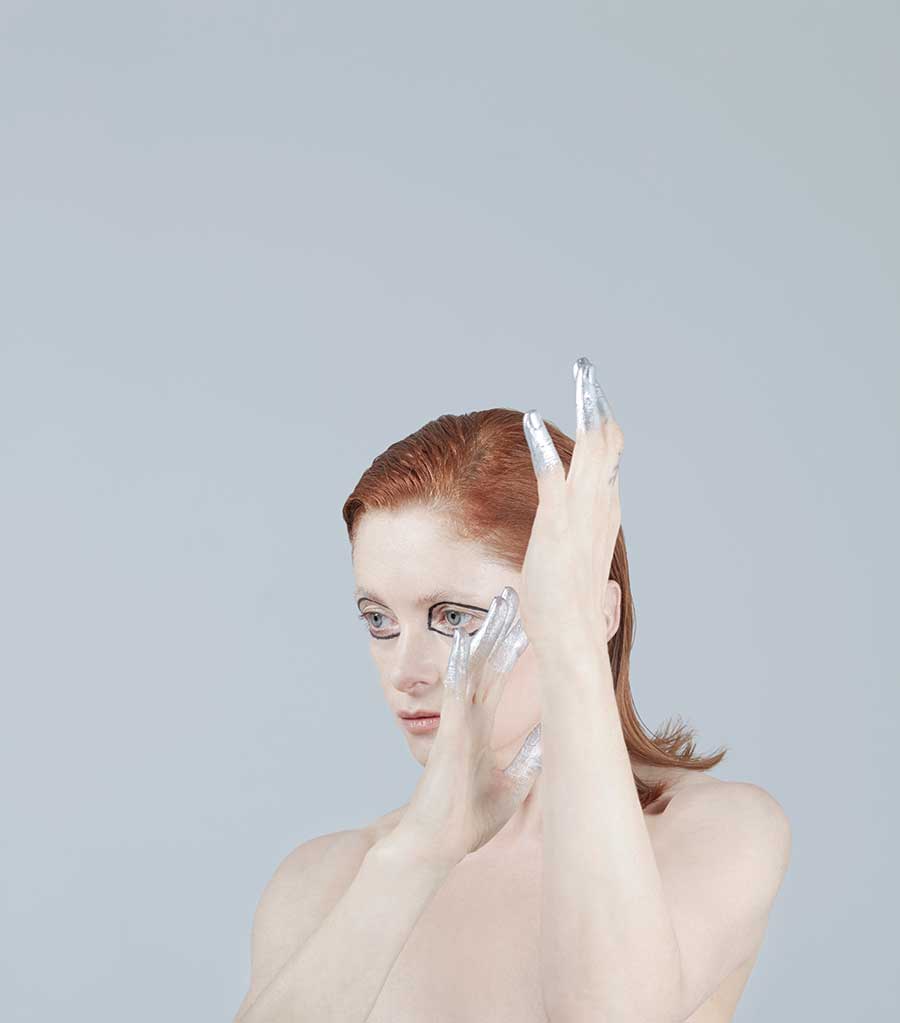
Perhaps the secret to Goldfrapp’s longevity is down to the dynamic of a duo. From Pet Shop Boys to Daft Punk, over the decades some of pop’s most enduring acts have been pairs. “I think you’re right. We’ve both been in bands, sometimes with 10 people and the amount of emotional knotting and unwinding that has to go on is difficult.
“When four people are being interviewed on TV I can see, by how they are sitting together, exactly what is going on. It’s painful to observe but you can predict who is going to fall out with who.
“It’s harder to work out the internal dynamics of a creative union when there are more than two people involved. But if there’s two of you there’s only one other person to deal with.”
Now comes the job of touring Silver Eye. Goldfrapp have already played a handful of UK shows, including the BBC 6 Music Festival in Glasgow ahead of a big performance at Glastonbury in June.
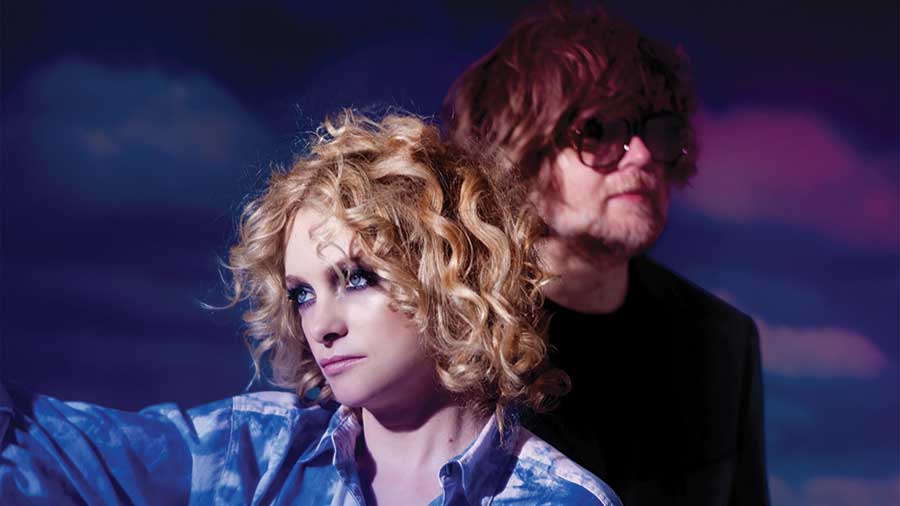
“We started rehearsing in Will’s garage,” explains Alison. “His garage is a real garage, it’s pretty low-key – lot of tins of Ronseal.” Alison has since escaped the whiff of turps, but Will hasn’t joined her, “this is where I let the band sail off into the sunset.”
For Alison, touring seems a real joy and the new material fits seamlessly in with her live favourites. “It’s a fun record to play and the reaction has been great,” she says eagerly.
“I still really enjoy playing Strict Machine, Ooh La La and Black Cherry. I never get bored of playing those songs live.”
Current enthusiasm suggests there’s plenty more changes to come from Goldfrapp. Surely retirement remains a long way off?
The singer teases: “I say to myself I’m going to stop soon and do something else. I can see myself on stage in 10 years, but definitely not 20. At the same time, Iggy Pop does it, so why not me?”
Why not indeed.
- Want more from Classic Pop magazine? Get a free digital issue when you sign up to our newsletter!
- Read more: Goldfrapp – Silver Eye review
- Silver Eye by Goldfrapp is out now
